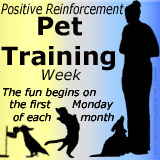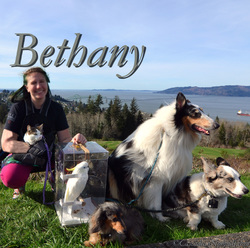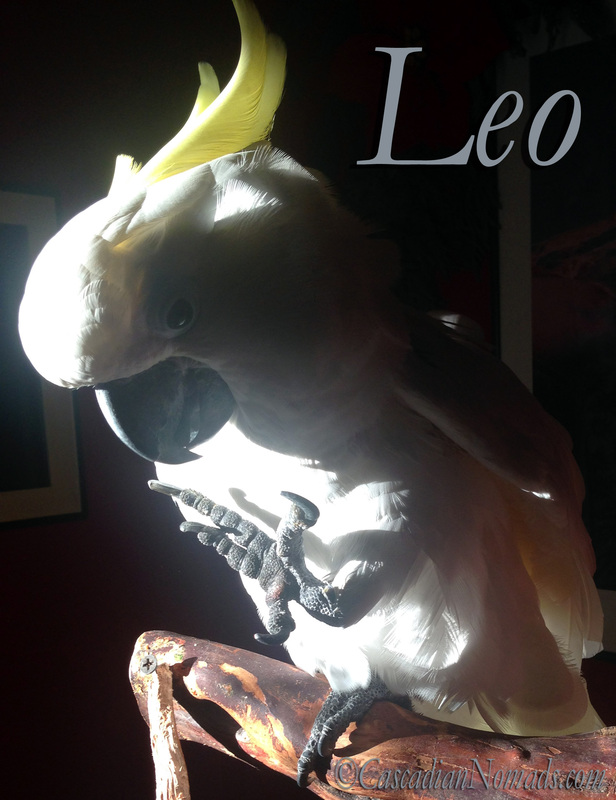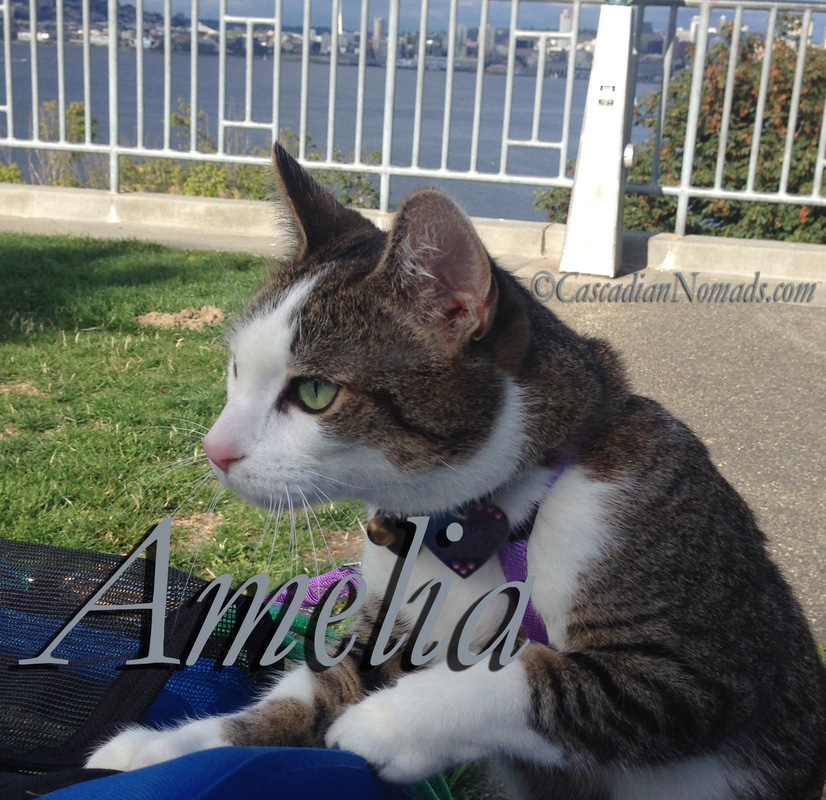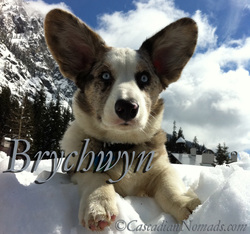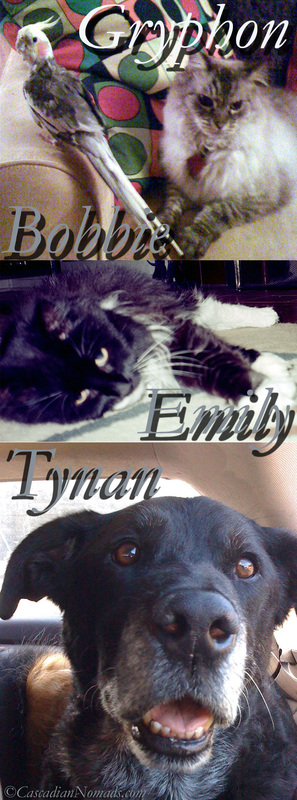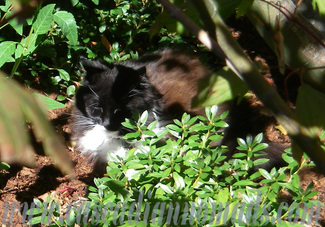 Sixteen-year-old Emily sunning amongst the azaleas in 2006
Sixteen-year-old Emily sunning amongst the azaleas in 2006 When I adopted Emily, my very first cat, I never imagined her living into her late teens. At the time, cat life expectancy was rarely into the low teens. Now I have also been lucky enough to share my life with Gryphon for over nineteen years. And I am not alone. America's senior cat population is up by 6%. As we increase our knowledge of how to best care for our older feline friends, we see cat life expectancy increasing. A major part of caring for our aging cats is being knowledgeable of their special nutritional needs
During a routine veterinary check-up with Emily years ago, the doctor suggested Emily have a senior pet exam. I was shocked. She was not an old cat! I now know cats age 7-10 are considered mature adult cats (likely a polite way of saying "old cat") and cats eleven and up are seniors (a polite way of saying "really old cat.") Although Emily was not an old cat on the outside, the blood panel included in her senior pet exam showed that she was aging on the inside. I firmly believe that my veterinarians subsequent suggestions to change Emily's diet extended her life and I have always been grateful.
| Well over a decade ago, though, my search for proper senior food was difficult and exhausting. Pet food store clerks stared at me as if I was speaking in meows when I relayed the nutritional values my veterinarian had sent me searching for. I read label, after label, after label and the print seemed to get smaller on each consecutive one I read. Nowadays most of my local pet food stores have either entire senior cat food sections or special labels on the shelves for foods that are nutritionally suitable for aging cats. Even widely available brand Hill's Science Diet has several "Mature Adult" and "Senior 11+" foods to choose from including formulas for hairball control and indoor cats. |
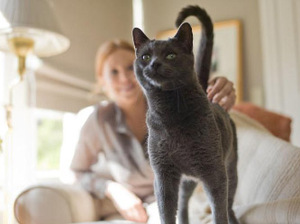
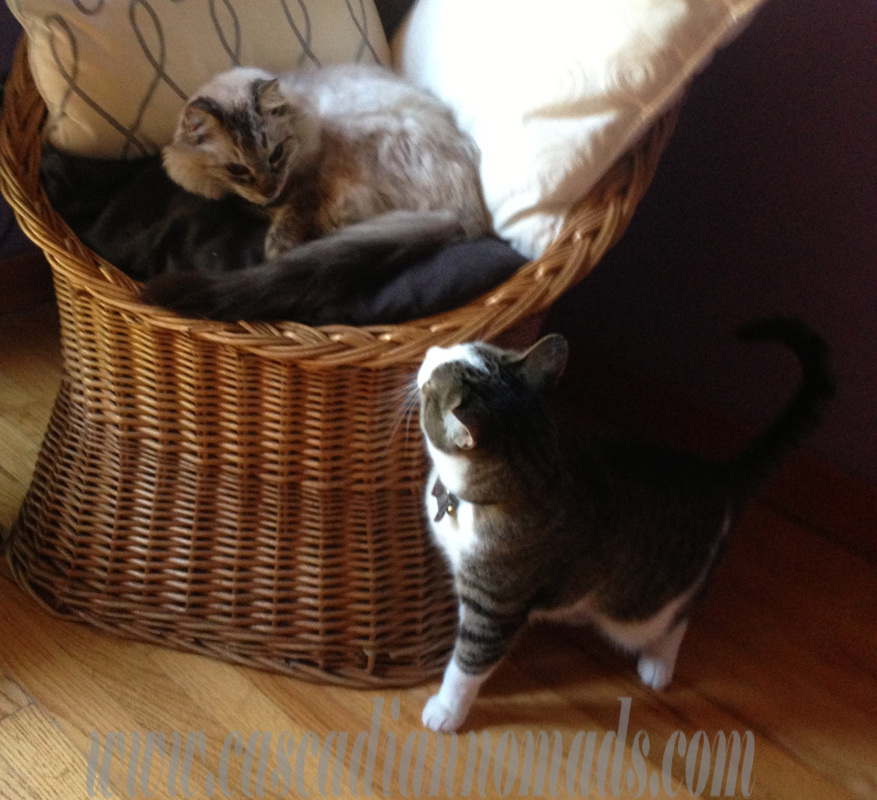
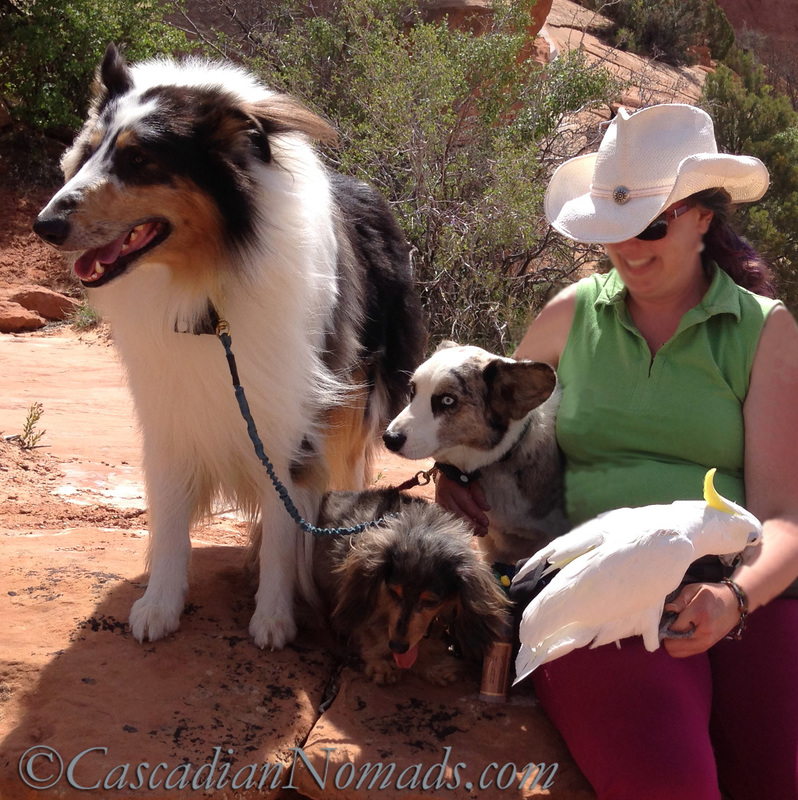
 Follow on Instagram
Follow on Instagram



